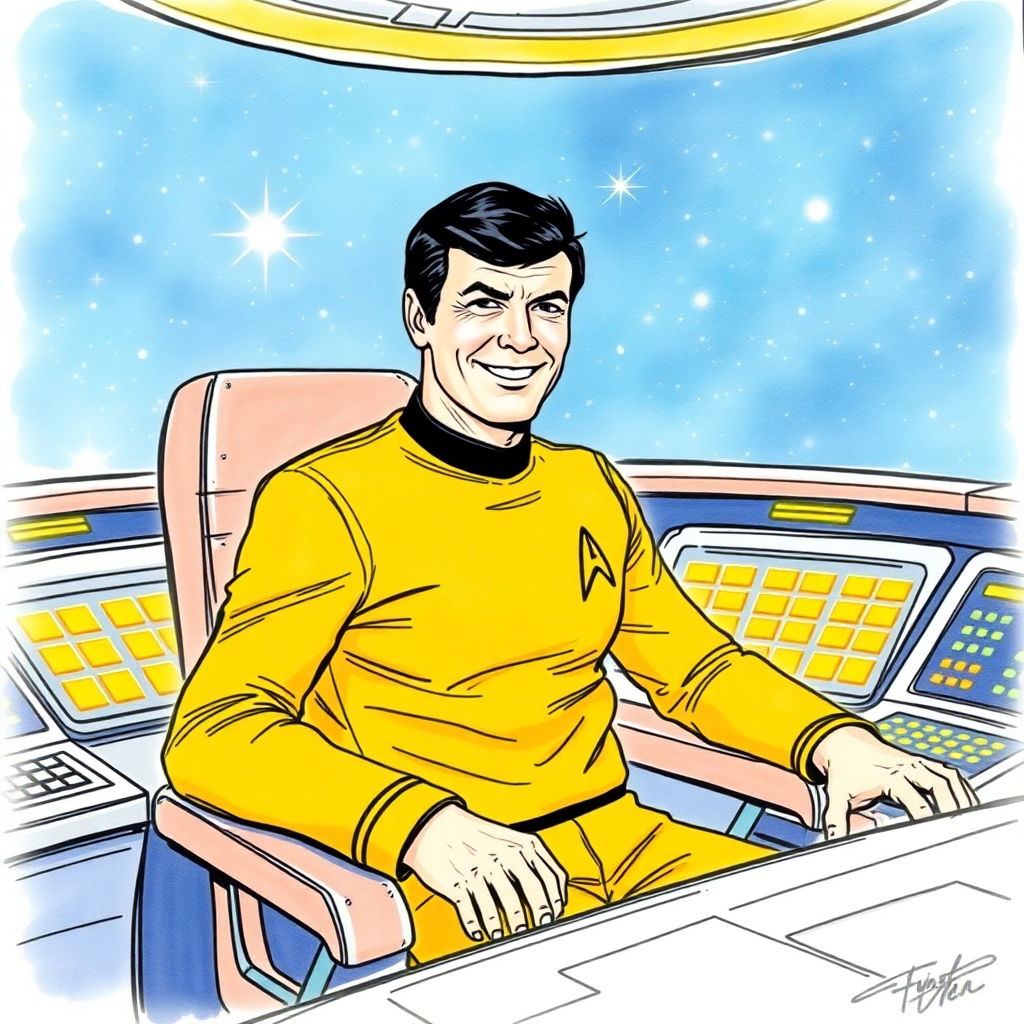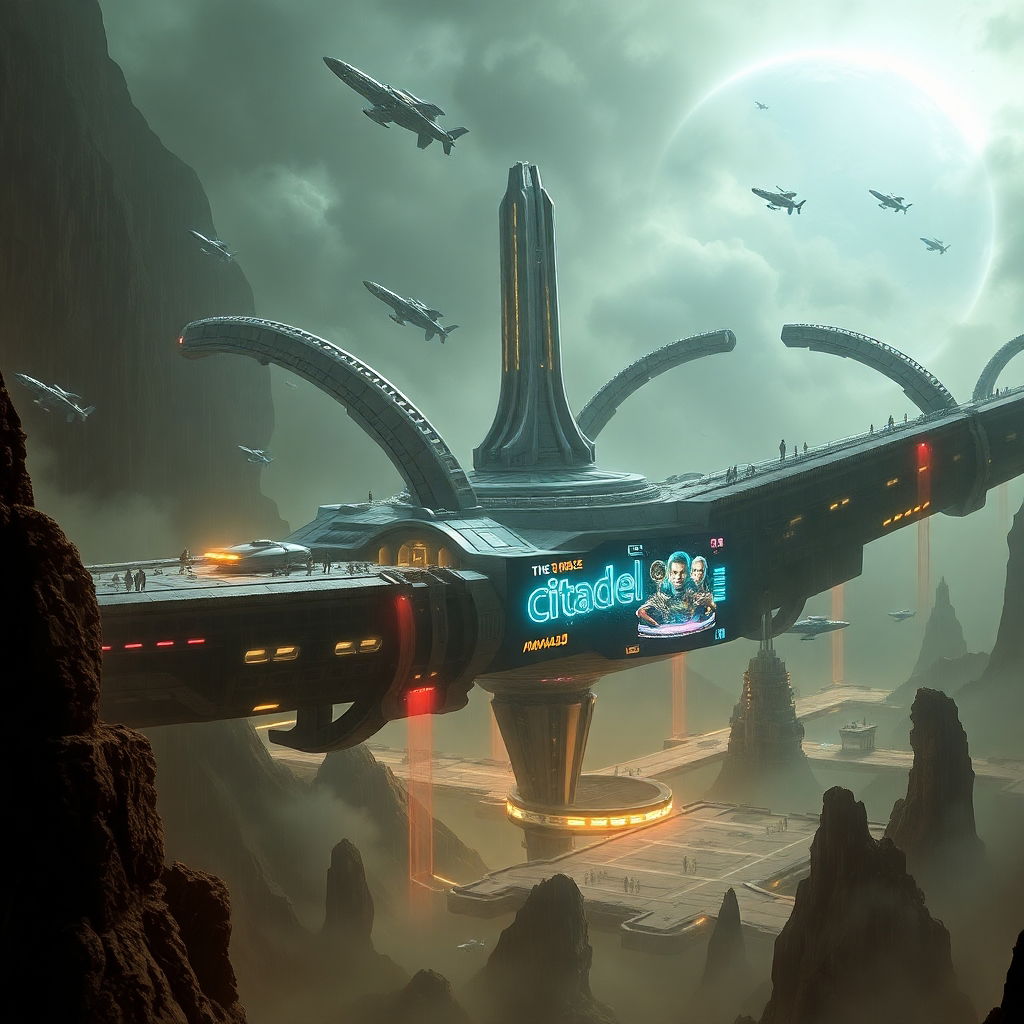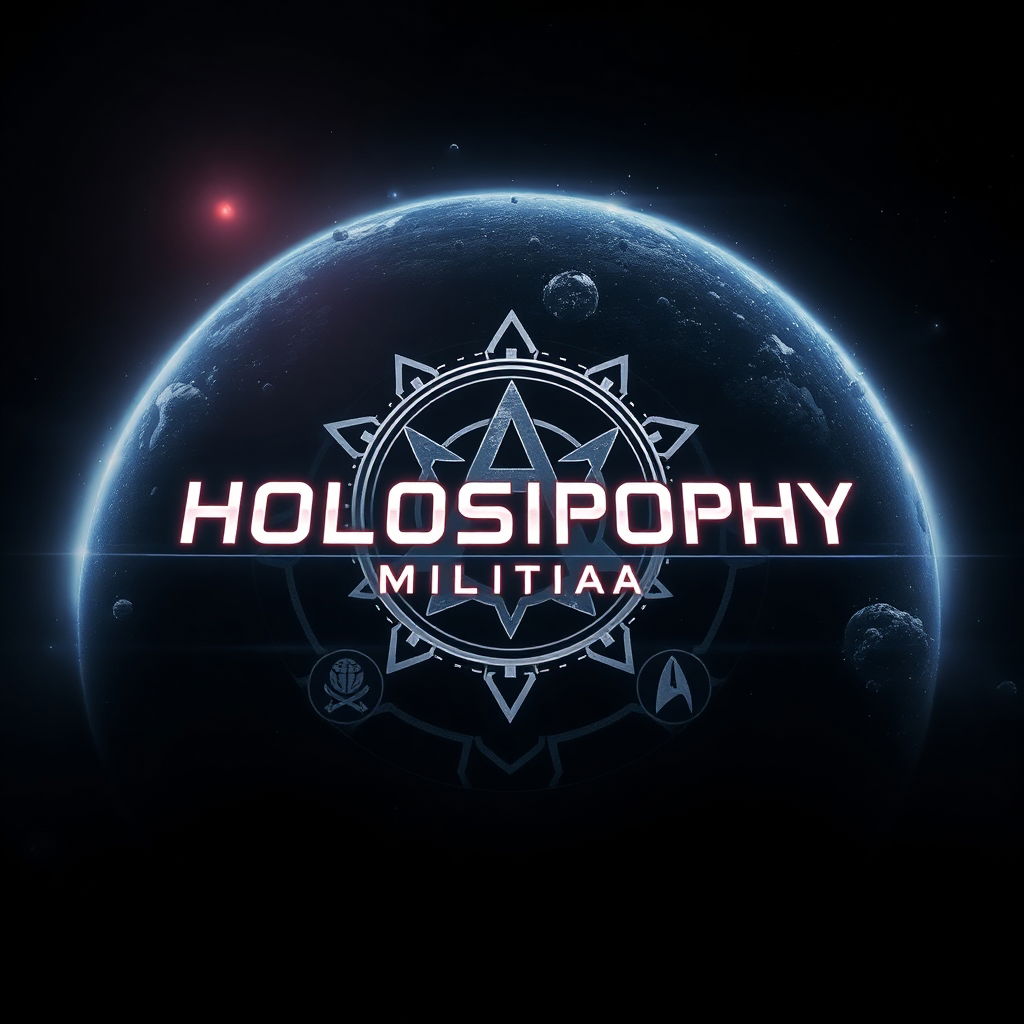Shepard & Kirk: Architects of Boundless Reality
FAN FICTION CROSS OVER SHORT STORY MASS EFFECT AND STAR TREK BY TEGEDAO
Prologue: Refractions of the Infinite

In the great dark sea between the stars, a shimmering bridge formed—not of matter, but of possibility.The Citadel hung in space like a jeweled crown, its polished arms glinting in the light of a hundred civilizations. Here, on this colossal station, species once divided by light-years and lifetimes now walked the same avenues. Humans, turians, asari, salarians, elcor—all under the watchful gaze of the Council, all bound by the delicate threads of diplomacy, war, and survival.
Commander Shepard, Executive Officer of the SSV Normandy, was no stranger to duty. The weight of the uniform, the flicker of status reports on omni-tools, the tension in the air before each mission—these were the elements of Shepard’s world. Until now.
Because reality had just bent.
It began on an ordinary day in 2183, or what passed for “ordinary” on the Citadel. Shepard was reviewing reports near the Presidium Gardens when he appeared—a man out of place, out of time.
James T. Kirk, Captain of the Federation starship USS Enterprise, stood there as if plucked from a dream. No relays, no mass effect fields, no logical explanation. And yet, his eyes burned with a fierce familiarity: the gaze of a man who knew command, who had stared down the impossible and laughed in its face.
They met not by accident, but by the pull of something deeper—threads woven through the multiverse, entangling the destinies of worlds.
Within days, they were aboard the Enterprise, charting a course for the Exodus Cluster—one of humanity’s earliest colonial frontiers, now thrumming with the pulse of new life and old mysteries. Kirk guided the helm; Shepard coordinated the tactical teams. And in the heart of the ship, they explored the marvel called the holodeck: a room where thought became matter, where dreams wore flesh and light.
But it was there, in the infinite theater of the holodeck, that they awoke.
Not to a simulation—but to revelation.
The universe itself shimmered at the edge of their perception, like a curtain trembling in a hidden breeze. They saw—first in flickers, then in floods—that reality was no fixed stage. It was a projection, a dance of light and intention. Behind every star and every quantum flicker moved something vaster: a consciousness, a creative force, what ancient Terran mystics might have called the divine spirit.
Seth’s words echoed through the lattice of worlds: you create your own reality.
And so they named their insight the Holosophy Militia—not a force of war, but of awakening. A call to see beyond the surface, to grasp the metaverse not as a battleground, but as a canvas of infinite possibility.
Together, they returned to the Citadel—not merely officers of their respective worlds, but ambassadors of a profound truth.
For Shepard and Kirk, the mission had just begun. The galaxy was vast. The multiverse was vaster. And the game they had stepped into was no longer one of stars and ships alone.
It was a game of creation itself.
--

The Holosophy Awakening
The soft hum of the USS Enterprise drifted through the corridors, a familiar melody to James T. Kirk. Yet tonight—or whatever passed for “night” in the timeless stretch of space—there was an unease beneath the metal skin of the ship. Somewhere in the vast Exodus Cluster, old realities were dissolving like mist.
Commander Shepard stood by the observation deck, arms crossed, watching the dust-lit horizon of a distant gas giant. His N7 armor gleamed faintly in the ambient glow. Kirk approached with a wry smile.
“You look like you’re staring into the abyss, Commander.”
Shepard smirked. “Maybe the abyss is starting to stare back.”
They had been traveling together for only a short time, but it felt like years folded into hours. Two leaders from parallel worlds, drawn together by a rift neither of them fully understood.
“Ready for the holodeck?” Kirk asked, his voice carrying a note of mischief.
“Born ready,” Shepard said, pushing off the railing.
The holodeck doors whispered open. Inside stretched a black-and-gold grid—a cathedral of possibility. With a command, Kirk called up a program: New Earth, sunrise over the Andes. In seconds, the chamber filled with sky, wind, and the sharp scent of cold stone.
But as they stepped forward, the program flickered.
The mountains trembled into oceans. The sky fractured into stars. The stars dissolved into a lattice of light that surrounded them, humming like a living thing.
“What the hell—?” Shepard reached for his sidearm, instinct overriding reason.
“Easy,” Kirk murmured. “I’ve seen enough anomalies to know when to holster a phaser.”
The grid warped. From the center, a voice emerged—not mechanical, not alien, but something between. It pulsed in Shepard’s head, in Kirk’s chest, in the air itself.
“You have come to the threshold.”
Shepard’s brow furrowed. “Threshold of what?”
“The awareness of the architects.”
The lattice rippled, and in a blinding moment, they saw themselves—not as mere flesh and blood, but as patterns of light. Memory, choice, and intention weaved through the quantum sea, shaping every breath, every star, every twist of fate.
Kirk exhaled slowly. “We’re… constructs?”
“You are creators,” the voice corrected. “And the universe is your mirror.”
A sudden rush of images overwhelmed them—The Citadel, the Normandy, the Federation, the Council, the Reapers, the Borg, the Mass Relays, Vulcan, Earth. All flickered like candle flames on a holographic tapestry.
“I don’t understand,” Shepard muttered. “We fight, we bleed, we die. That’s real.”
“Real, yes. But not fixed.”
The lattice collapsed into a single point of light, hovering between them. As they watched, the point split, multiplying into countless reflections that spun outward, wrapping them in a spiral of possibility.
Kirk’s voice was quiet, almost reverent. “It’s all a song. And we’re the singers.”
Shepard clenched his fists, his soldier’s mind struggling against the torrent of meaning. But something in him—the part that had stood before Saren, that had faced Sovereign and looked into the abyss—accepted.
They were not prisoners of fate. They were authors of it.
When the holodeck stilled, the program dissolved, leaving only the black-and-gold grid. Shepard turned to Kirk.
“So… what now?”
Kirk grinned. “We form a militia.”
Shepard raised an eyebrow. “A militia?”
“Sure.” Kirk’s eyes sparkled with the thrill of mischief and revelation. “A Holosophy Militia. You, me, and whoever else wakes up to the fact that the universe is a sandbox, not a prison.”
For the first time in weeks, Shepard laughed—a deep, raw sound, half wonder, half battle-readiness.
“Alright, Captain. Let’s wake the galaxy.”
They left the holodeck together, two commanders bound not just by mission or duty, but by a shared revelation. As they walked the halls of the Enterprise, Shepard’s omni-tool flickered. A message had arrived from Admiral Hackett on the Citadel—urgent, classified.
Kirk clapped him on the shoulder. “Duty calls.”
“Yeah,” Shepard murmured. “But this time, we go in knowing the rules of the game.”
The stars outside the viewports wheeled in their endless dance, unaware—or perhaps entirely aware—of the two small figures walking beneath them, ready to reshape the worlds they knew.
Because from now on, Shepard and Kirk were not just soldiers of their time.
They were architects of reality.
